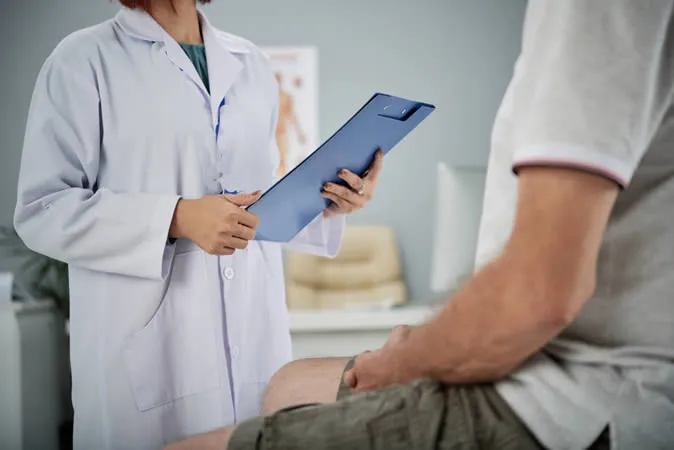What is Keratosis Pilaris
Keratosis pilaris, a common skin condition, causes small, goosebump-like spots on the back of the arms, buttocks and thighs. Also referred to as follicular keratosis, keratosis pilaris can occur at any age and does not cause any serious issues. Sometimes, keratosis pilaris clears up on its own and other times it becomes a chronic problem, so the condition can be difficult to treat.

What are the signs and symptoms of Keratosis Pilaris
The following signs may indicate keratosis pilaris:
- Small, acne-like bumps
- Rough, dry patches
- Redness and inflammation near the bumps
- Itchiness in some cases
What are the causes of Keratosis Pilaris
When keratin, the hard protein that protects skin from harmful substances and infection, builds up, a scaly plug develops and blocks the opening of the hair follicle. Usually, many plugs form, which creates the rough patch of skin, also known as keratosis pilaris. Genetics and a propensity toward other skin conditions like eczema, may increase chances of keratosis pilaris, but it can occur in otherwise healthy individuals.
What treatments are available at the dermatologist for Keratosis Pilaris
Keeping the affected area moist and avoiding harsh soaps will help control symptoms of keratosis pilaris. The dermatologist may recommend these treatments as well:
- Medicated lotions or creams with 12 percent ammonium lactate to soften skin
- Urea to help loosen and remove dead skin cells
- Corticosteroids for temporary relief of symptoms
- Topical retinoids that increase cell turnover, reducing the incidence of plugged follicles

What are the complications and risks of Keratosis Pilaris?
The main complications and risks of Keratosis Pilaris are:
- Atrophy: This is a rare complication that occurs when the skin becomes thin and fragile due to excessive use of topical steroids or other medications. It can lead to increased sensitivity, bruising, and infection of the skin.
- Scarring: This can happen if the bumps are scratched, picked, or inflamed. Scarring can cause permanent changes in the skin texture and color, and may also result in hair loss.
FAQ About Keratosis Pilaris
Is Keratosis Pilaris contagious?
Can Keratosis Pilaris be cured?
Can Keratosis Pilaris be a sign of other health conditions?
Is there a dermatologist near me in Salt Lake City that offers treatment for Keratosis Pilaris?
Yes. At our Salt Lake City dermatology office we offer treatment for Keratosis Pilaris to patients from Salt Lake City and the surrounding area. Contact our office today to schedule an appointment.

